- Thursday, 19 February 2026
Consensus Must For Statute Revision
Following the formation of coalition government of Nepali Congress and CPN-UML about six months ago, the oppositional politics has drastically weakened in the country. In the parliamentary democracy, the role of opposition is considered important to supervise the government’s activities and improve its performance. In principle, the main opposition in the parliament checks the possible abuse of power by the governing parties. It keeps a close eye on the Bills and budget allocation of the government to make sure that state's resources and tax payers' money have been judiciously and transparently spent.
It is the duty of the opposition to scrutinise the government’s decisions and actions, and see to it that they are in favour of the people. It is supposed to offer alternative vision and leadership to that of the ruling party. The opposition parties must prove their mettle that they constitute credible alternative to the government. Only then can they secure the confidence of voters. It is only with the constructive role of opposition parties that democracy deepens and can be institutionalised. This is a reason why the roles and responsibilities of opposition forces have been widely acknowledged in the parliamentary democracy.
Spoilsport
On the downside, the opposition forces have been accused of being spoilsports hell-bent on causing hindrance to implementation of the government’s decisions and policies. They inveigh against the government on the slightest pretext, and discredit it for all problems facing the country. The House obstruction has been its big weapon to browbeat the government. There are cases in which the parliamentary proceedings were disrupted for months, preventing the passage of vital Bills and debates on the issues of public interest.
The House of Representatives (HoR), formed following first general elections held after the 1990 political change, remained remarkable in strengthening the parliamentary system. CPN-UML general secretary late Madan Bhandari played a role of prominent opposition leader. As he spoke in the House, there used to be a pin-drop silence in the House chamber, with lawmakers from both opposition and ruling benches lending an ear to his thought-provoking speeches. Late Daman Nath Dhungana, who was the House Speaker, said: “Power belongs to the ruling party and House to the opposition.” Dhungana’s democratic approach and Bhandari’s powerful eloquence had infused vitality and dynamism to the parliament. The strong and vibrant opposition served as a deterrence to the then prime minister Girija Prasad Koirala’s authoritarian impulses.
At the moment, the country has a strong government having almost two-thirds majority in the HoR but the opposition forces are weak. This is perhaps the first time the two largest forces -- NC and UML -- formed their joint government in a normal political order in the aftermath of the country’s transformation into a federal republic. The three-tier election held in November 2022 produced a hung parliament. The CPM-Maoist Centre-led the coalition government for more than one and a half years with support of NC sometimes and the UML other times. However, Pushpa Kamal Dahal Prachanda’s mercurial character also brought the two parties together. He played one party off against another, claiming that he had a magical number to lead the government.
With the formation of NC-UML alliance, Prachanda’s magic number evaporated in the thin air. However, he is now leading the opposition forces to put up a united front against the coalition government over its decision to issue scores of ordinances by ‘dodging’ the parliament. On Friday, the opposition parties organised a press conference, demanding that the government immediately summon the winter session. In a joint statement, they have argued that recently enacted ordinances have long-term consequences. The opposition parties have also decided to demand special session if the government fails to start the process of calling the winter session.
The government has insisted that it unveiled ordinances to promote good governance through the effective and efficient delivery of goods and services. It has even argued that endorsing Bills from the parliament undergoes a lengthy process and is time-consuming. But the critics argue that as the ruling parties hold around two-thirds majority, it has no problem in getting the vital Bills approved from the parliament. Being a strong government, it is under pressure to deliver results so that the people feel change in their daily life. This may be a reason for the issuance of ordinances but the opposition has found an Achilles’ heel in this argument.
Political maneuvering
Prachanda's move to coalesce the opposition groups into a front against the government is also seen as his restlessness of his ouster from the government by a section of observers. However, he has applied political maneuvering and skill to bring the forces having a mélange of ideological shades on board. The opposition parties comprise of federalists, secularists, monarchists, anti-federalists and pro-Hindus. It is interesting how they will collaborate at the crucial moment of constitution amendment on the basis of which the present coalition came into existence.
Meanwhile, Prime Minister KP Sharma Oli has pushed back the date of possible statute amendment, bearing in mind the numerical strength of ruling parties in the parliament. But his remark has ruffled a few feathers within ruling and opposition parties. The ruling and opposition require forging understanding on the basic values of democracy and constitution. For instance, the process of statute writing and amendment demands consensus among the all stakeholders. This must not be confined to a numerical position of the parties for this has a far-reaching implications for the country and people. Those who are left out in the amendment process might start to hit the street, challenging the acceptability and legitimacy of the national charter.
(The author is Deputy Executive Editor of this daily.)



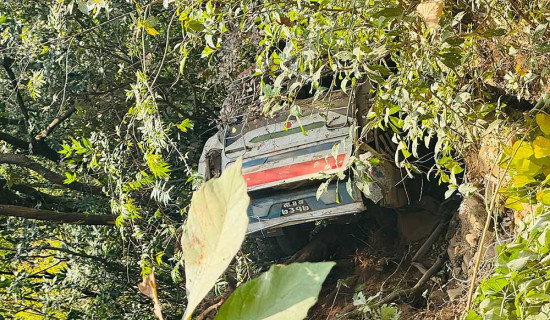
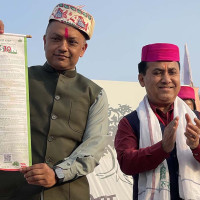
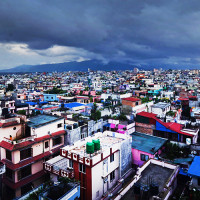
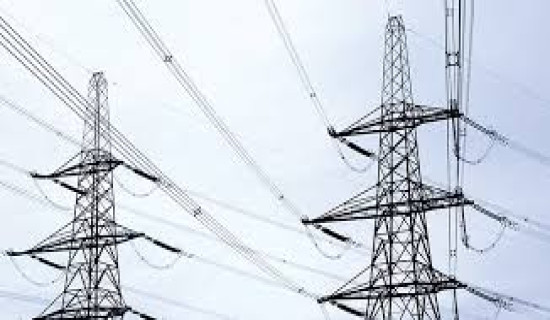
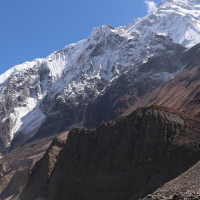
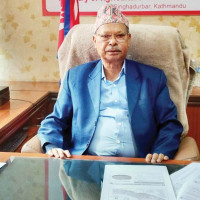
-original-thumb.jpg)







